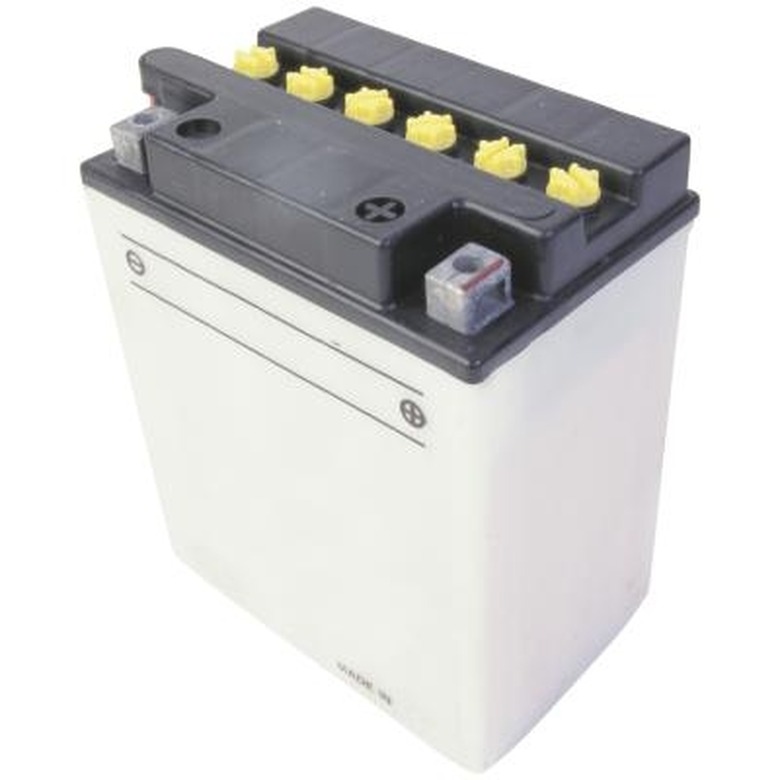What Is Voltage In A Battery?
There are many different types of batteries, and most have different voltages, ranging from 1.5-volt AA batteries to the common 12-volt car battery. Many people, however, do not know exactly what the term "voltage" refers to.
Physics and Terminology
Physics and Terminology
The term "voltage" in a battery refers to the difference in electric potential between the positive and negative terminals of a battery. A greater difference in potential results in a greater voltage.
Electric potential means the difference in charge between two points–in this case, the two terminals of a battery. One is positively charged, and the other is negatively charged. A negative charge simply means that there is an excess of negatively charged particles, or electrons, on the terminal, while a positively charged terminal has a lack of those electrons. Physical separation of the two terminals prevents the electrons from traveling from the negatively charged terminal to the positively charged one. Once the two terminals are connected, via a circuit, for example, the electrons are free to travel along the path of the circuit, moving from the negative electrode to the positive one. This motion of electrons is called electric current, which is measured in amperes, or amps.
History
History
The unit of electric potential, the volt, is named in honor of Alessandro Volta, a physicist credited with inventing the first electrochemical cell in 1800. His cell consisted of a zinc and a copper electrode immersed in an electrolytic solution of salt and water. He also popularized the electrophorus, a machine that could produce large quantities of static charge. He did not, however, invent it, though he is often credited with doing so. Volta was made a count by Napoleon Bonaparte in 1810, and one of the SI units of electricity, the volt, was named after him in 1881.
Misconceptions
Misconceptions
Because it is a difference in electric potential rather than an amount of electric current, high voltage is not necessarily dangerous, while high current can be. When discussing electricity, the analogy of a water hose is often used. In this analogy, voltage is likened to water pressure difference–a high pressure difference will result in a faster electron flow. Current, measured in amps, describes how fast a given volume of electrons travel past a certain point in the circuit. Most batteries available on the market may have high voltages, but the amperage available depends on the circuit the battery is used in, not on the battery itself.
Uses
Uses
As battery technology has advanced, devices running on battery power have become smaller and more powerful. The widespread use of lithium-ion (Li-ion) batteries, for example, has allowed cell phones to become exponentially smaller than their forebears, mainly due to their low power-to-weight ratio. In these batteries, a lithium ion moves one way between the anode and cathode during discharge, and the other way during recharging.
The Toyota Prius, a popular hybrid automobile, debuted on the market using nickel-metal hydride (Ni-MH) batteries. Its next generation of batteries, available in late 2009, will also be lithium-ion due to their advantages over the Ni-MH battery pack.
Conclusion
Conclusion
Batteries range in voltage from a few hundredths of a volt to many hundreds of volts, depending on both the size of the battery and the materials from which it is made. They are an excellent way to power various forms of devices, no matter what the voltage requirements of those devices.
References
- Fundamentals of Physics, Eighth edition; Jearl Walker; 2008
Cite This Article
MLA
Donat, Wolfram. "What Is Voltage In A Battery?" sciencing.com, https://www.sciencing.com/voltage-battery-5058989/. 24 April 2017.
APA
Donat, Wolfram. (2017, April 24). What Is Voltage In A Battery?. sciencing.com. Retrieved from https://www.sciencing.com/voltage-battery-5058989/
Chicago
Donat, Wolfram. What Is Voltage In A Battery? last modified March 24, 2022. https://www.sciencing.com/voltage-battery-5058989/
